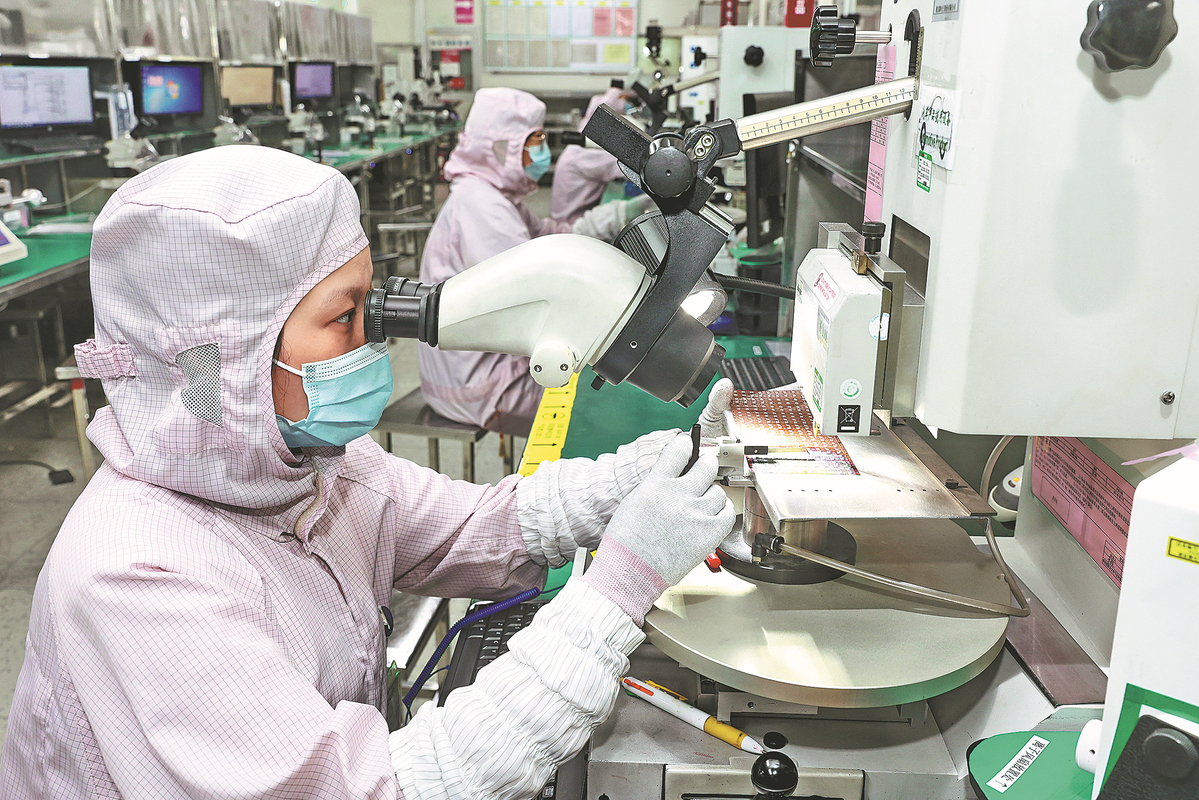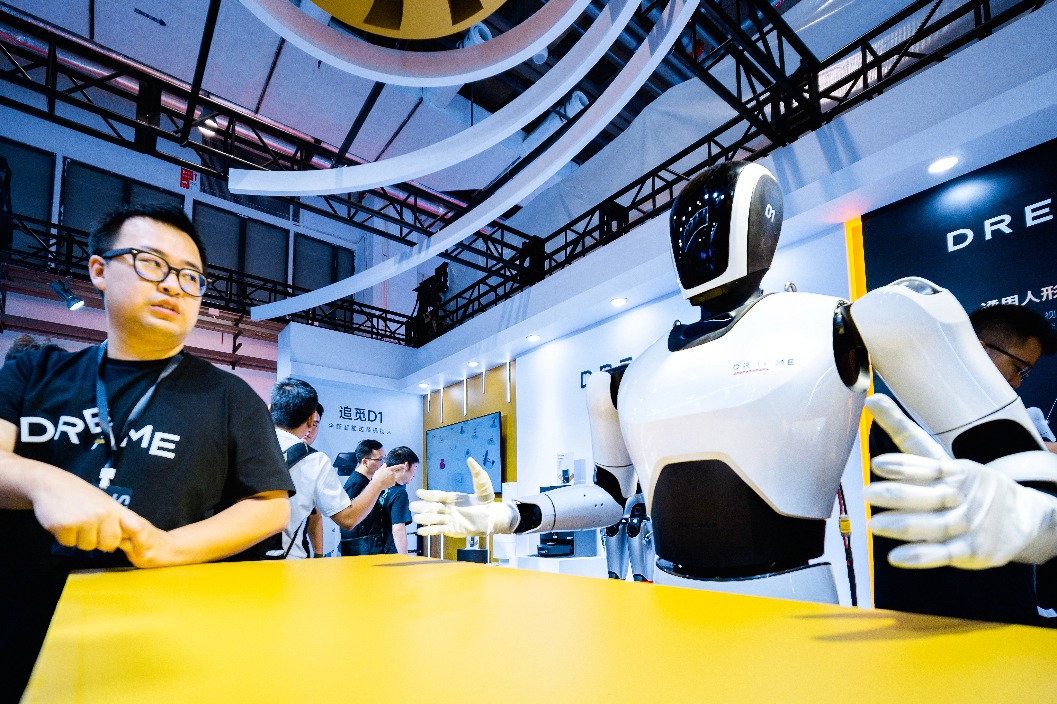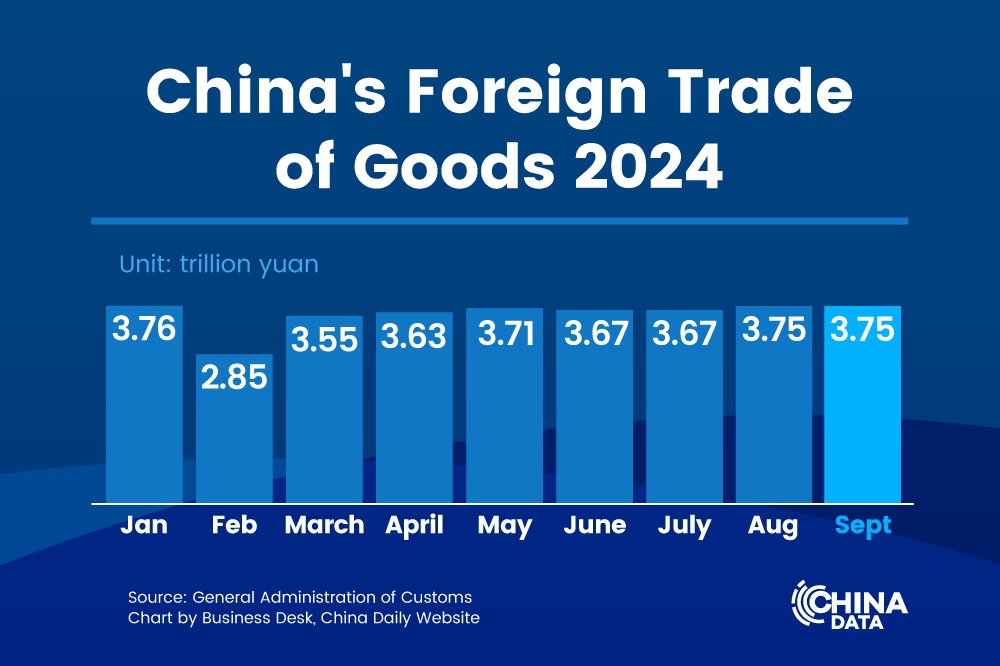Integration with global chains in focus


Chinese firms urged to adopt broader perspective for better use of resources
China will encourage domestic enterprises to integrate more deeply into global industrial and supply chains, and strengthen the coordination and allocation of resources in key industries such as semiconductors, the country's top industry regulator said on Monday.
Minister of Industry and Information Technology Jin Zhuanglong said optimizing and stabilizing the industrial chain and supply chain cannot be separated from the smooth and efficient circulation of industrial resources around the world.
China will optimize the layout of the domestic industrial chain and focus on key areas, promote the convergence of high-quality element resources, such as technology, finance and talent, to cultivate a number of advanced manufacturing clusters, Jin said.
According to him, more efforts will be made to strengthen resource coordination and allocation of key industries like integrated circuits, new energy, biomedicine and medical equipment worldwide, so as to jointly create a collaborative and efficient industrial ecosystem.
Jin made the remarks at the China Development Forum that ended on Monday.
The moves reflect China's efforts to ensure industrial and supply chains function as public goods and deepen international cooperation in this area.
Denis Depoux, global managing director of consultancy Roland Berger, told China Daily on the sidelines of the CDF, "China remains a significant market for most foreign companies, and has gradually become an important source of innovation to strengthen the global competency of some foreign companies."
With the optimized COVID-19 containment measures, the winter of 2022-23 has, to a certain extent, seen "a replay of the 2021 situation when China's supply chain supported economic recovery in Europe and in the US because of its flexibility and availability", Depoux said.
China's industrial and supply chains, he said, have improved significantly, as domestic and foreign companies invested heavily in modernizing their local production systems.
"China has demonstrated its innovation capability and is leapfrogging in several fields, gaining leadership globally in areas like the electric vehicle chain, from batteries to charging infrastructure, photovoltaic panels, wind turbines, nuclear and telecommunications equipment."
China's industrial modernization, big consumption potential and growing innovation prowess are three strong fundamentals that create a new China story for the world, he said.
Li Dongsheng, founder and chairman of TCL, a Chinese manufacturing and tech company, who attended the CDF, said that in recent years, the Chinese economy has shown great resilience and vitality in the face of challenges from the COVID-19 pandemic. As China's industrial and supply chain adjust to the new environment, its economy and market demand can be strong and sustainable.
"TCL looks forward to having more cooperation with foreign enterprises in technology and trade, so as to jointly contribute to the high-quality development of China's economy and promote the expansion of domestic demand in the Chinese market."
As the United Nations forecast that India is projected to surpass China as the most populous country this year, some experts worry China's advantages in manufacturing and its position in the global supply chains may diminish.
But Jeffrey Sachs, a renowned economist and director of the Center for Sustainable Development at Columbia University, told China Daily: "China's strength right now is that it is on the cutting edge of many of the most important technology innovations for the future, including low-carbon energy solutions, electric vehicles, batteries, supply chains, artificial intelligence, high-speed trains and many other sectors. All of this will be very good for China's growth in the future."




































